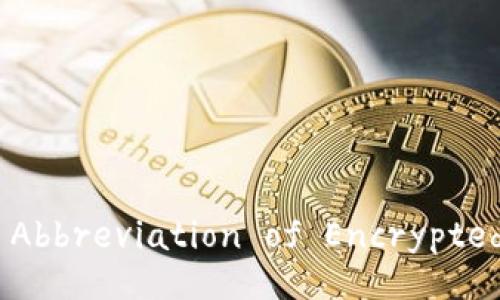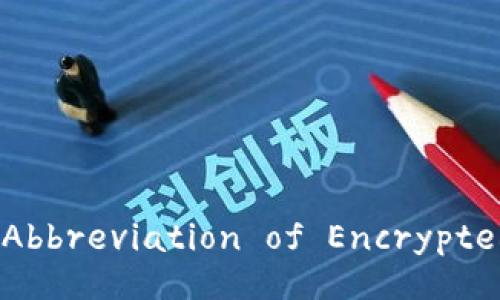When it comes to digital wallets, security is always a top concern for users. That's why encrypted wallets have become increasingly popular, as they provide an extra layer of protection for users' assets. However, when it comes to writing the abbreviation for encrypted wallet, there are a few different options to consider.
The most common abbreviation for encrypted wallet is "EW." This abbreviation is used widely across the industry and is generally understood by those familiar with the space. However, some may argue that "EW" is too broad and could be confused with other meanings, such as "electronic warfare" or "emergency worker."
Another option for the abbreviation of encrypted wallet is "ENW." This abbreviation is more specific to the term "encrypted" and therefore may be seen as a more accurate representation of the wallet's purpose. However, "ENW" is not as widely used as "EW," so it may not be as recognizable to some users.
Additionally, some wallets may choose to use a combination of their brand name or initials with the term "encrypted wallet" to create a unique abbreviation. For example, if a wallet was called "Secure Wallet," they may choose to use "SW-EW" as their abbreviation. This can help to differentiate them from other wallets in the market and create a memorable identity for the brand.
Overall, the abbreviation of encrypted wallet is not set in stone, and different wallets may choose to use different abbreviations. When choosing an abbreviation, it's important to consider factors such as clarity, recognition, and uniqueness.
Now, let's address some related questions:
1. What is an encrypted wallet?
An encrypted wallet is a digital wallet that uses advanced encryption algorithms to protect the private keys used to control access to assets. This provides an additional layer of security to prevent unauthorized access and theft.
2. How does an encrypted wallet work?

When a user creates an encrypted wallet, a public key and a private key are generated. The public key is used to receive funds, while the private key is used to sign transactions and authorize the movement of funds. The private key is stored securely within the encrypted wallet and requires a password or other authentication mechanism to access.
3. Why are encrypted wallets important?
Encrypted wallets are important because they help to ensure the security and privacy of users' assets. Without encryption, private keys could be vulnerable to theft or unauthorized access, leading to the loss of funds. By using advanced encryption algorithms, encrypted wallets provide a strong measure of protection for users' assets.
4. What are some popular encrypted wallets?

There are many popular encrypted wallets in the market, including Trezor, Ledger, and KeepKey. These wallets are all known for their advanced security features and trusted reputation.
5. Are there any downsides to using an encrypted wallet?
One potential downside to using an encrypted wallet is the risk of losing access to the private keys. If a user forgets their password or loses their recovery seed phrase, they may not be able to access their assets. Additionally, encrypted wallets are not immune to hacks or other security breaches, so users should always take precautions to protect their assets.
6. How can I create an encrypted wallet?
To create an encrypted wallet, users can choose from a variety of wallet providers and follow the instructions provided. It's important to choose a trusted and reputable provider, and to follow best practices for securing the private key, such as using a strong password, enabling two-factor authentication, and keeping the recovery seed phrase in a safe and secure location.
tpwallet
TokenPocket是全球最大的数字货币钱包,支持包括BTC, ETH, BSC, TRON, Aptos, Polygon, Solana, OKExChain, Polkadot, Kusama, EOS等在内的所有主流公链及Layer 2,已为全球近千万用户提供可信赖的数字货币资产管理服务,也是当前DeFi用户必备的工具钱包。

